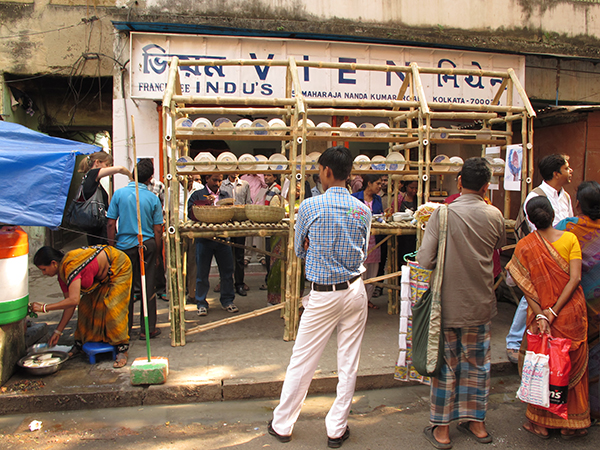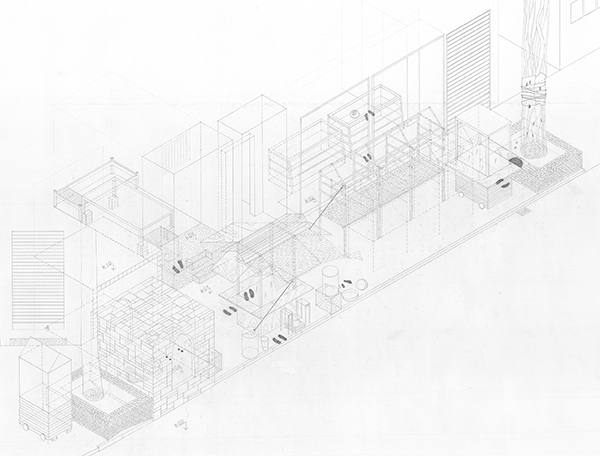Communities are under severe pressure due to an increasing developer-driven and profit-oriented planning – supported by politics – which makes it difficult to prosper for the small things that connect places, things, and citizens.
This practice-based research focusses on developing perceptions and perspectives that can support encounters and exchanges between people and places in local communities – in cities, suburbs as well as villages from the point of view that places should not only be defined by their geographical area and number of citizens but include the everyday activities that connect people, things, and places.
Within the context of in-situ actions and large annotated hand drawings, the research explores an alternative way of planning by being led on by things and situations found on site in contrast to beginning with designing buildings. The practice uses in-situ actions to develop collaborative practices in locally anchored contexts. It invents strategies to work across art/architecture, social relations and public space.
The research uses large annotated hand drawings – identifying, supporting, modifying and activating principles of subdivision of land, boundaries, and relationships between public and private and between formal and informal structures.
The practice-based research is conducted through three parallel processes that mutually inform each other:
One process is related to the development of empirical works through drawing, another is related to the ongoing practice in local contexts, where in-situ actions play the role as a conducting force of the progressing research. The third process is related to the theoretical context, where problematics and questions, imbedded within the practice and identified during the research processes, can be unfolded through discussions with selected thinkers and practices, within the field of interest.
The research draws on different research strategies: action research, designerly mode of inquiry, and the Adapt-r model*, where practice is conducted parallel to research.
Supervisors
- Associate Professor, Claus Peder Pedersen, Aarhus School of Architecture
- Associate Professor, Tadeja Zupancic, University of Ljubljana, Faculty of Architecture
This PhD project is funded partly by Adapt-r*, Aarhus School of Architecture, University of Ljubljana, faculty of Architecture – and partly by Gitte Juul and private funding.
*Adapt-r is a creative practice research model funded by EU, Marie Curie ITN funding. It aims to train creative practice researchers in the explication and dissemination of tacit knowledge and latent cognitive resources to build a new generation of research-led practitioners able to meet the complex and often competing demands of contemporary Europe.
Related
YOU MAY ALSO BE INTERESTED IN




